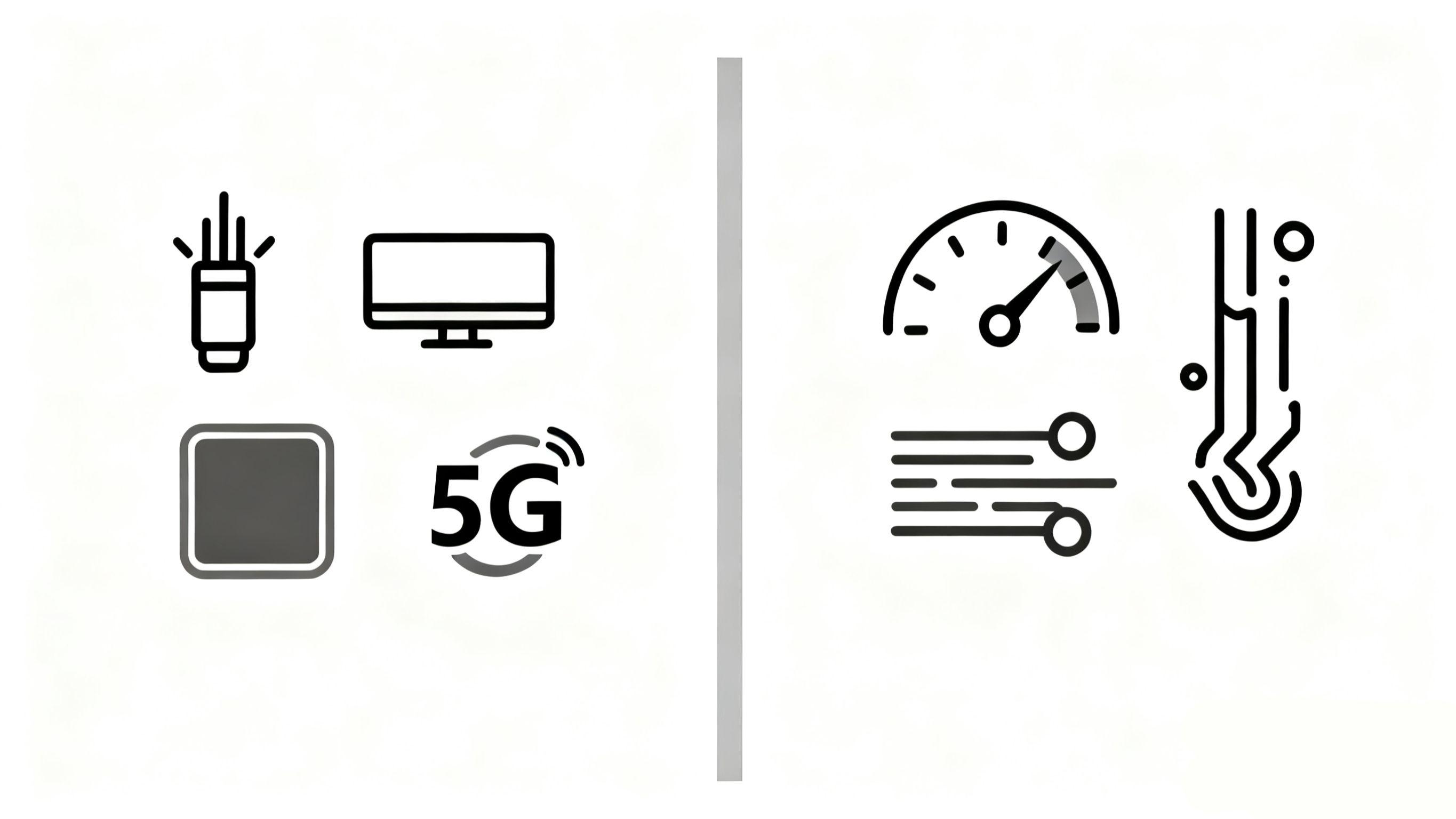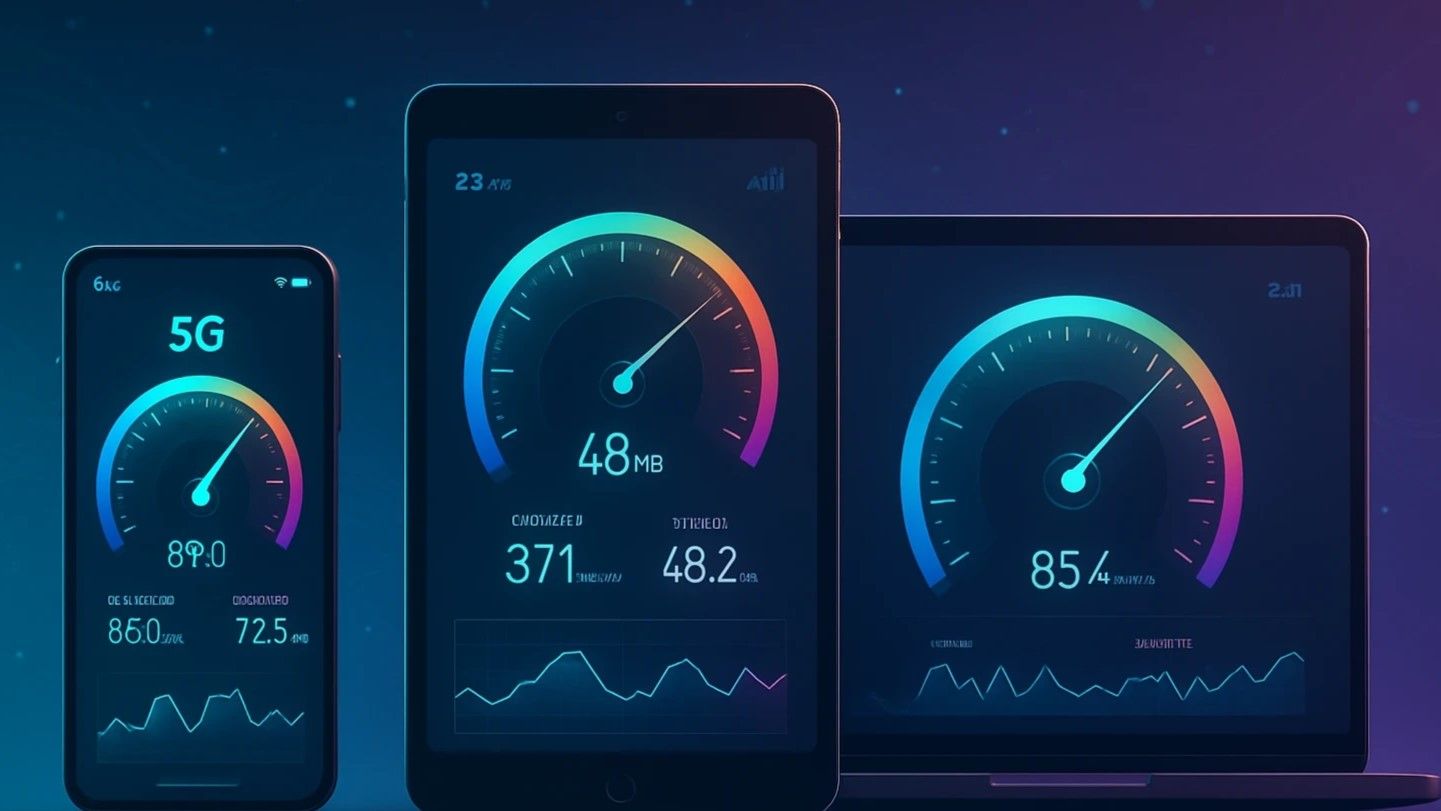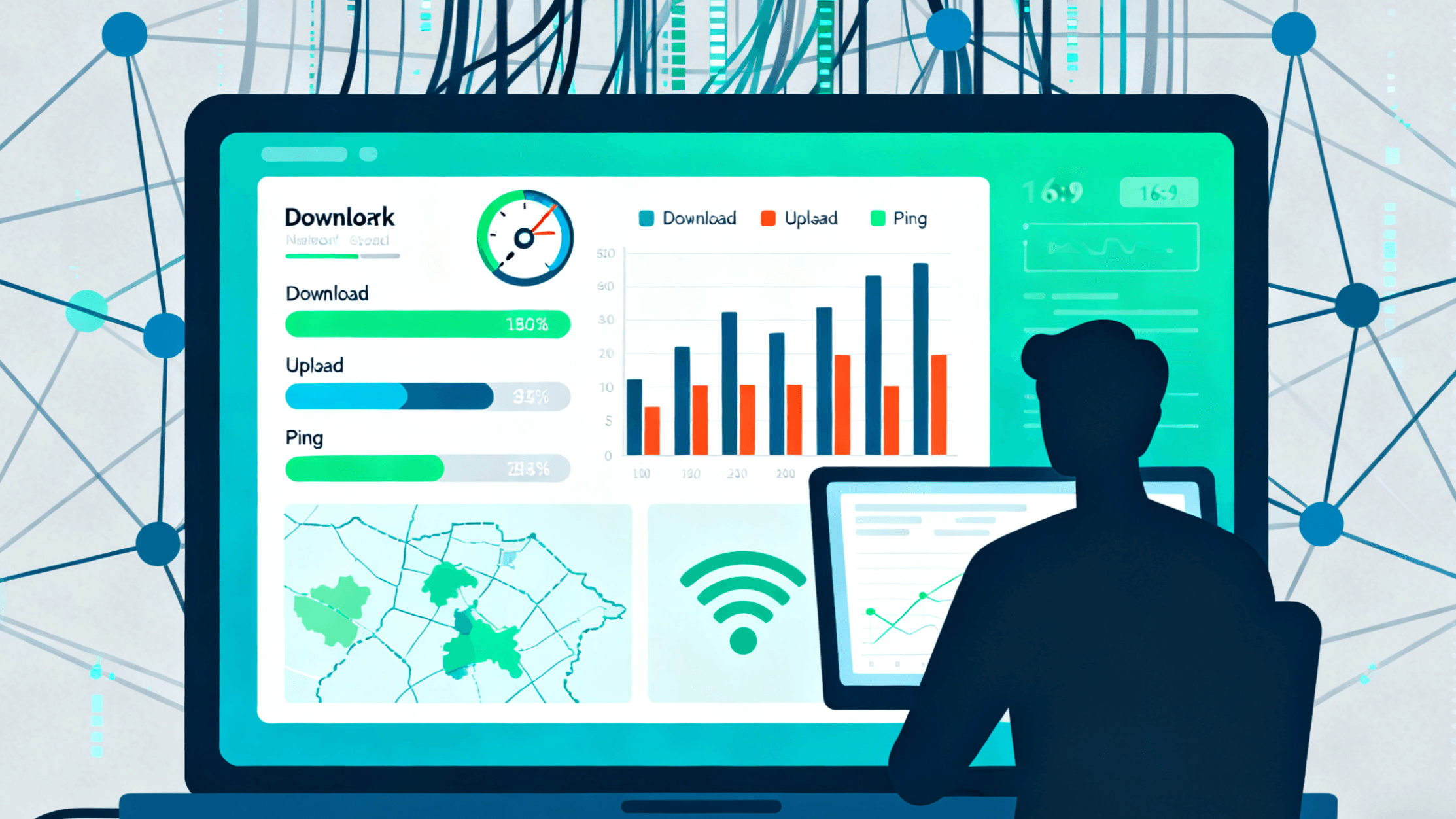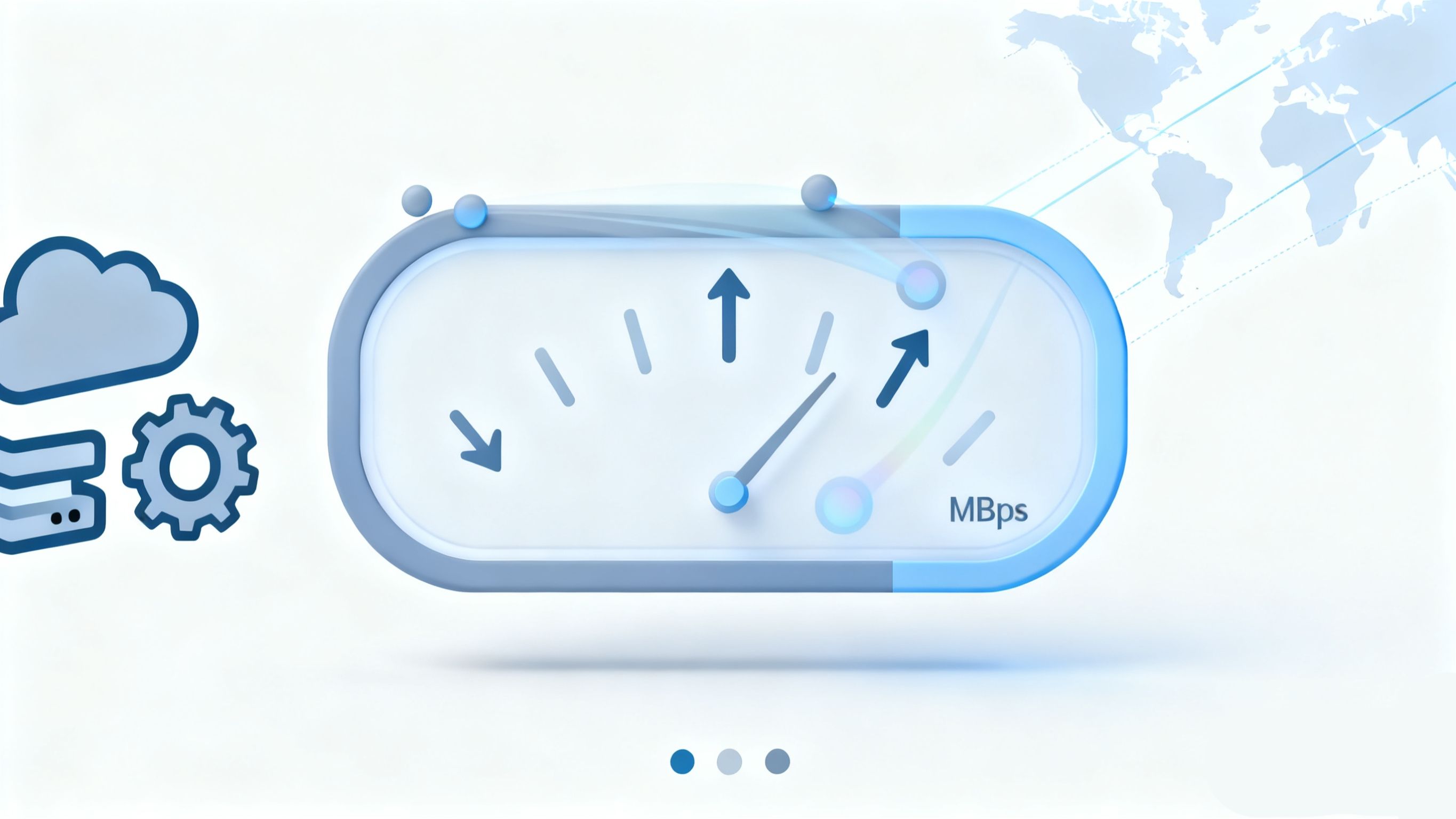Bandwidth vs. Broadband: How to Easily Understand Internet Speed and Network Performance
Whether you’re browsing the web, streaming videos, or playing online games, you’ve probably heard the terms “broadband” and “bandwidth.” However, many users are confused — what’s the real difference between them, and how do they affect your internet speed?
In this article, you’ll easily understand these two concepts and learn how to use the ToDetect Online Network Testing Tool for broadband speed testing, helping you clearly assess your network’s actual performance.

1. What Is Broadband?
Broadband refers to a high-speed internet access method — it describes how you connect to the internet, not the specific amount of data that can be transmitted.
Common types of broadband include:
- Fiber Broadband: High-speed and stable, ideal for homes and offices.
- ADSL: Older broadband type with slower speeds.
- 5G / Mobile Broadband: Provides internet access through mobile networks.
For example, when your plan says “200M broadband,” that 200M represents the theoretical access limit, not your actual download or upload speed.
Before performing a broadband speed test, it’s important to understand your broadband type — this helps you evaluate whether your test results are normal and set realistic expectations for network performance.
2. What Is Bandwidth?
Bandwidth refers to the amount of data a network connection can carry per second, usually measured in Mbps or Gbps. It reflects your network’s transmission capacity, not the type of connection.
The higher the bandwidth, the more data your network can transmit simultaneously — meaning faster download and upload speeds, and smoother performance for multiple devices online at once.
For example:
- Home broadband 200M → Theoretical bandwidth: 200 Mbps
- If bandwidth is too low, large file uploads or downloads may lag.
- During a network speed test, bandwidth directly affects the results.
With the ToDetect Online Network Testing Tool, you can easily view your bandwidth indicators and understand your network’s true transmission capacity.
3. Difference Between Broadband and Bandwidth
| Item | Broadband | Bandwidth |
|---|---|---|
| Core concept | Network access method | Network transmission capacity |
| Emphasis | How you connect to the Internet | Data transmission capacity and speed |
| Unit | Not directly expressed in Mbps | Mbps / Gbps |
| Primary role | Provides the internet access channel | Determines network speed and |
In short:
- Broadband = how you get online
- Bandwidth = how much data the network can transmit
In practice they are closely related, but they are not the same and should not be confused.
4. How Bandwidth and Broadband Affect Internet Speed
- Broadband type determines overall connection quality
Fiber broadband is faster and more stable than ADSL, supporting higher bandwidth and providing better speed test results. - Bandwidth size affects download/upload speed and latency
When bandwidth is limited, multiple devices sharing the same network can cause noticeable slowdowns and higher latency. - Real-world testing results
By using an online speed test tool for broadband speed testing, you can clearly view your download speed, upload speed, ping, and packet loss rate — helping you determine whether your connection meets expectations or needs optimization.
5. Common Questions (FAQ)
Q1: Does a higher broadband plan always mean faster internet?
A1: Not necessarily. Broadband defines the theoretical maximum speed, but your actual speed also depends on bandwidth capacity, network quality, and device performance.
Q2: What happens if my bandwidth is too low?
A2: You may experience slow downloads/uploads, lag when multiple devices are online, high gaming latency, or frequent video buffering.
Q3: How can I check my broadband and bandwidth at home?
A3: Use the ToDetect Online Network Testing Tool — it allows one-click broadband speed testing and network speed testing, so you can easily view your real connection speed.
Q4: How do broadband and bandwidth affect gaming latency?
A4: Bandwidth determines how fast your game data transfers, while broadband type affects network stability. Insufficient bandwidth or unstable broadband can cause high ping, lag, and disconnections.
Summary
- Broadband = Internet access method
- Bandwidth = Data transmission capacity
Understanding the relationship between the two helps you diagnose network issues more accurately.
Use the ToDetect Online Network Testing Tool to quickly perform a network speed test and understand your network’s actual performance.
 AD
AD 5G, 4G and Wi-Fi Network Speed Test Comparison: Which is Faster?
5G, 4G and Wi-Fi Network Speed Test Comparison: Which is Faster? How to Choose the Best Broadband or Mobile Network Provider for You
How to Choose the Best Broadband or Mobile Network Provider for You Mobile and PC Broadband Speed Test Guide: Check Your Internet Speed in One Minute
Mobile and PC Broadband Speed Test Guide: Check Your Internet Speed in One Minute How to Use ToDetect to Check Your Browser Fingerprint?
How to Use ToDetect to Check Your Browser Fingerprint? The Ultimate Anti-Linking Tool for Multi-Account Matrix Marketing: Browser Fingerprint Detection
The Ultimate Anti-Linking Tool for Multi-Account Matrix Marketing: Browser Fingerprint Detection One-Click Browser Fingerprint Check! The Ultimate Guide to Preventing Account Linking and Bans on Amazon/eBay Multi-Store Operations
One-Click Browser Fingerprint Check! The Ultimate Guide to Preventing Account Linking and Bans on Amazon/eBay Multi-Store Operations